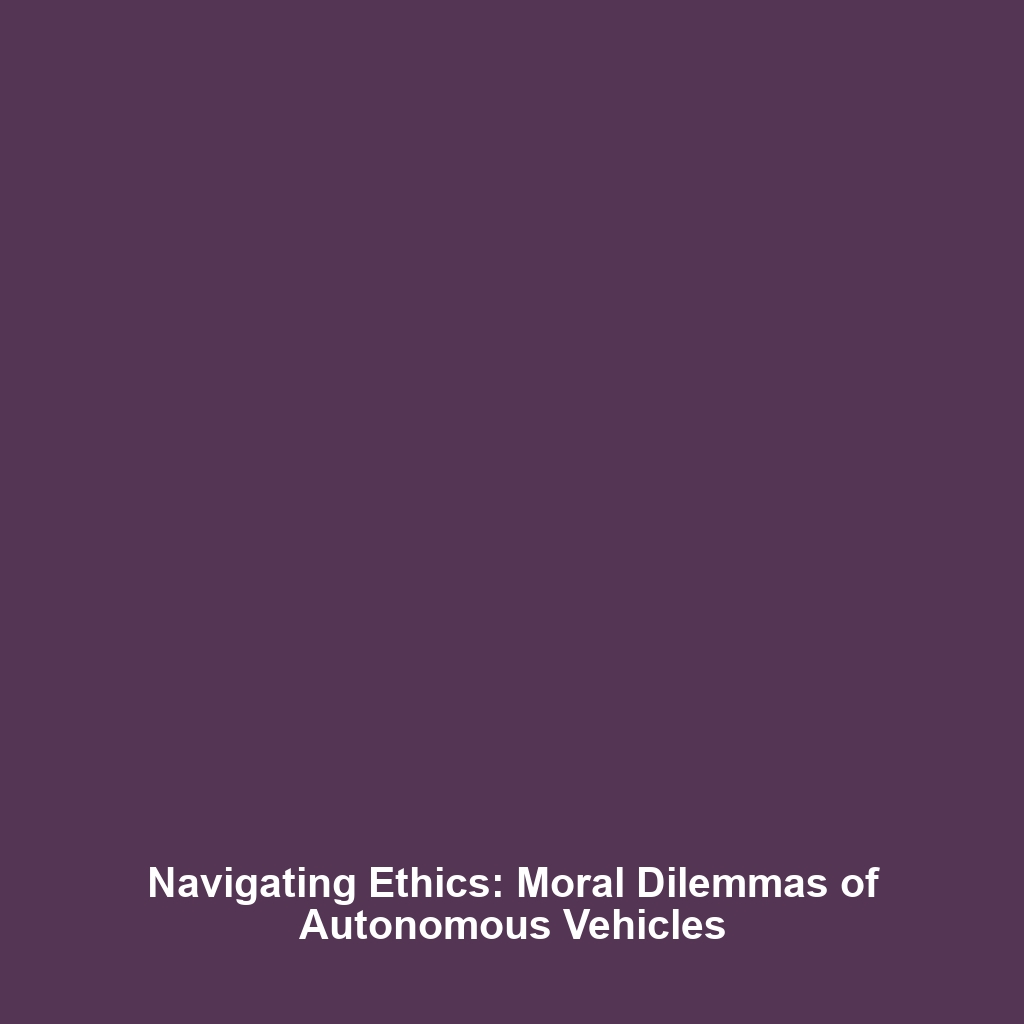Ethics of Autonomous Vehicles: Moral Challenges of Self-Driving Cars
Introduction
The rise of autonomous vehicles represents a significant evolution in transportation technology, but it also brings forth complex ethical dilemmas. The Ethics of Autonomous Vehicles includes various moral challenges facing self-driving cars, highlighting critical questions related to decision-making, safety, and accountability. As we navigate this new frontier, understanding these ethical implications is essential for ensuring that the integration of AI Ethics into society is both responsible and beneficial.
Key Concepts
Moral Principles in Autonomous Navigation
At the heart of the Ethics of Autonomous Vehicles are several important principles:
- Utilitarianism: Evaluating decisions based on the overall happiness or welfare they produce.
- Deontological Ethics: Emphasizing duty and the morality of actions themselves rather than their consequences.
- Accountability: Addressing the question of who is responsible for the actions of a self-driving car.
AI Ethics Integration
The integration of these principles into AI Ethics underlies the necessity for creating guidelines and regulations that dictate how autonomous vehicles should operate ethically in various scenarios, from accident avoidance to pedestrian rights.
Applications and Real-World Uses
The Ethics of Autonomous Vehicles has practical implications in several areas, notably:
- Public Transportation: Self-driving buses and shuttles prioritize passenger safety while optimizing routes.
- Logistics and Delivery: Automated delivery services must navigate ethical dilemmas in urban environments with mixed traffic.
- Personal Vehicles: Families utilize self-driving cars, raising questions about child safety and ethical decision trees.
These applications demonstrate how autonomous vehicles are used in the realm of AI Ethics, emphasizing the need for ethical considerations in their development and deployment.
Current Challenges
Despite advancements, several challenges persist in studying and applying the Ethics of Autonomous Vehicles:
- Ethical decision-making frameworks are still underdeveloped.
- Public trust in self-driving technology remains low.
- Legal frameworks lag behind technology, creating ambiguity in accountability.
These issues in AI Ethics must be addressed to foster responsible integration into society.
Future Research and Innovations
Future research in the Ethics of Autonomous Vehicles is expected to focus on:
- Developing advanced ethical algorithms that govern vehicle behavior.
- Improving AI transparency to enhance public trust.
- Creating comprehensive regulatory frameworks for autonomous vehicles.
As next-gen technologies emerge, understanding their ethical implications will be fundamental to maximizing their benefits and mitigating potential harms.
Conclusion
In summary, the Ethics of Autonomous Vehicles poses significant moral challenges that must be carefully navigated as self-driving technology rapidly advances. Addressing these challenges is paramount to fostering safe, equitable, and successful integration of autonomous vehicles into society. Stakeholders must prioritize ethical considerations in AI Ethics moving forward. For more insights, explore our other articles on AI Ethics and the Ethics of Autonomous Vehicles.
